Your Cart is Empty
Buy a book, plant a tree.
Crumbling and decaying into an artifact reminiscent of the Renaissance era, this renovation required an adroitness of old to fuse with the new to save it from its withering state

A bespoke approach was taken by Archiplan Studio to honor the timeworn aesthetic of this structure in Mantua, Lombardy, a city known for the architectural legacy of the Renaissance Gonzaga rulers. Combining the ancient and modern with grace and ease, we look inside this revamped paragon.
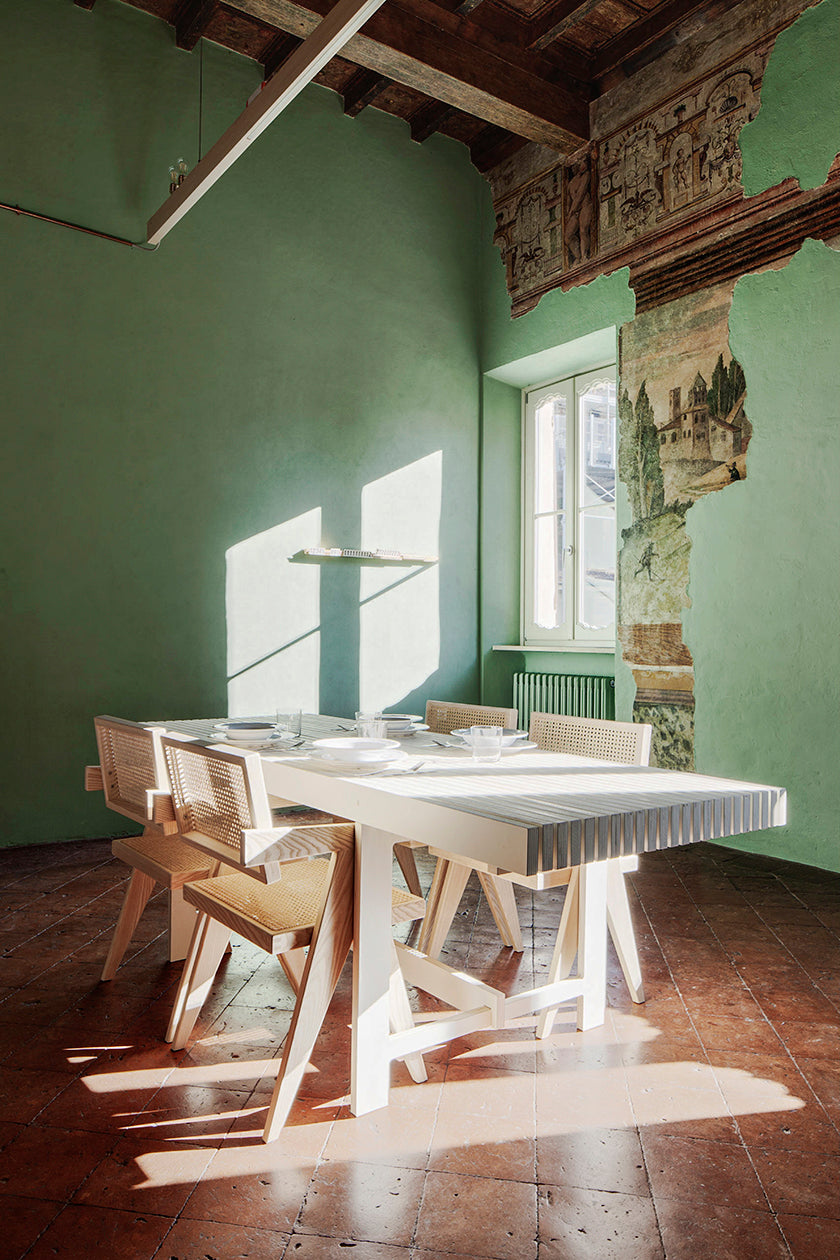
Founded in 2000, the architecture collective is a team of five who have achieved numerous chords of acclaim in the past two decades. Meticulous hours of research and planning went into the hallmarks of this distinctive restoration. In The Home Upgrade, Diego Cisi, who set up the studio with fellow architect Stefano Gorni Silvestrini, reflects on the project:
“We pay particular attention to the historical evolution of the building when we are dealing with any renovation project. We try to build relationships between the old and the new, creating a balance that achieves a sense of harmony without compromising the innate beauty of the building.”
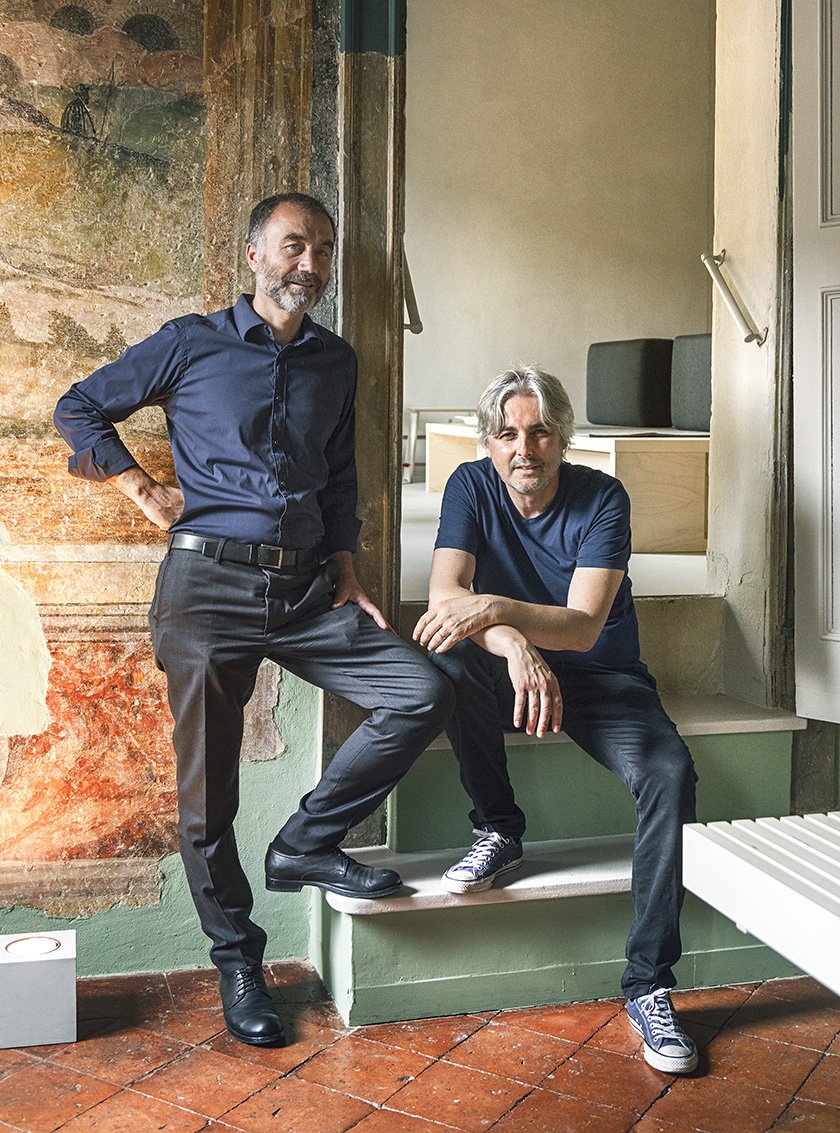
The city of Mantua was ruled by the Gonzaga family for three centuries—commissioning countless frescos by artists such as Andrea Mantegna in both private and public city offerings. Archivist Sara Cazzoli and her husband came across the apartment for sale and noticed the gilded Renaissance frescos within the residence. Noticing the mural paintings, terra-cotta tile floors, and ceiling medallions, this instantly swayed their decision to purchase the apartment.
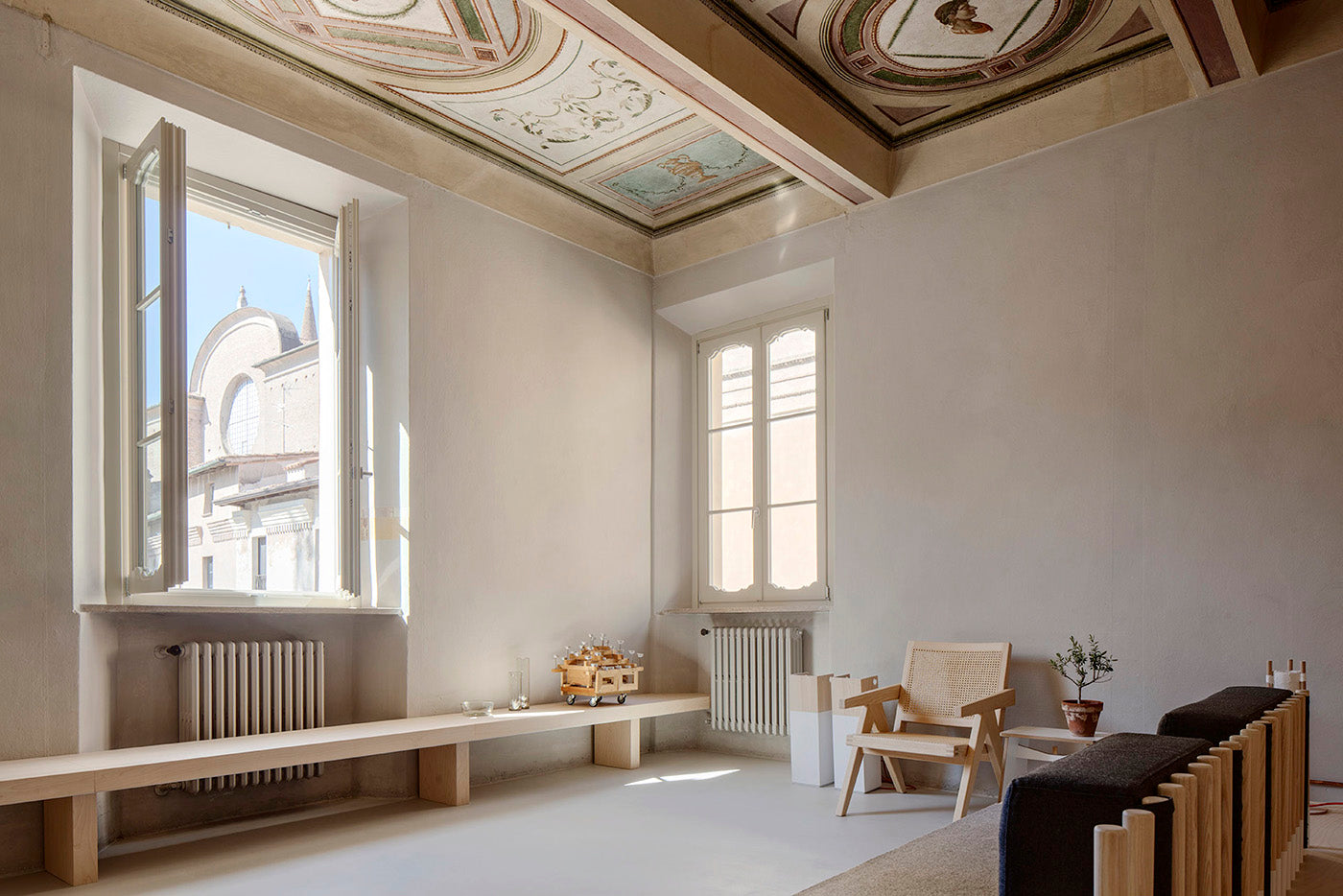
Already owners of another historic residence, they didn’t need a second home so were unsure what to do with their purchase until they decided to renovate it for short-stay visitors to experience the intimate Mantuan decoration.
In Italy, experimentation can often encounter resistance. Archiplan wanted to introduce bold contemporary interiors while leaving the historical elements completely untouched to honor the heritage of the 500-year-old building. Light, modern, and unassertive interventions were introduced alongside the original color palette of the Brolettouno apartment project inception.
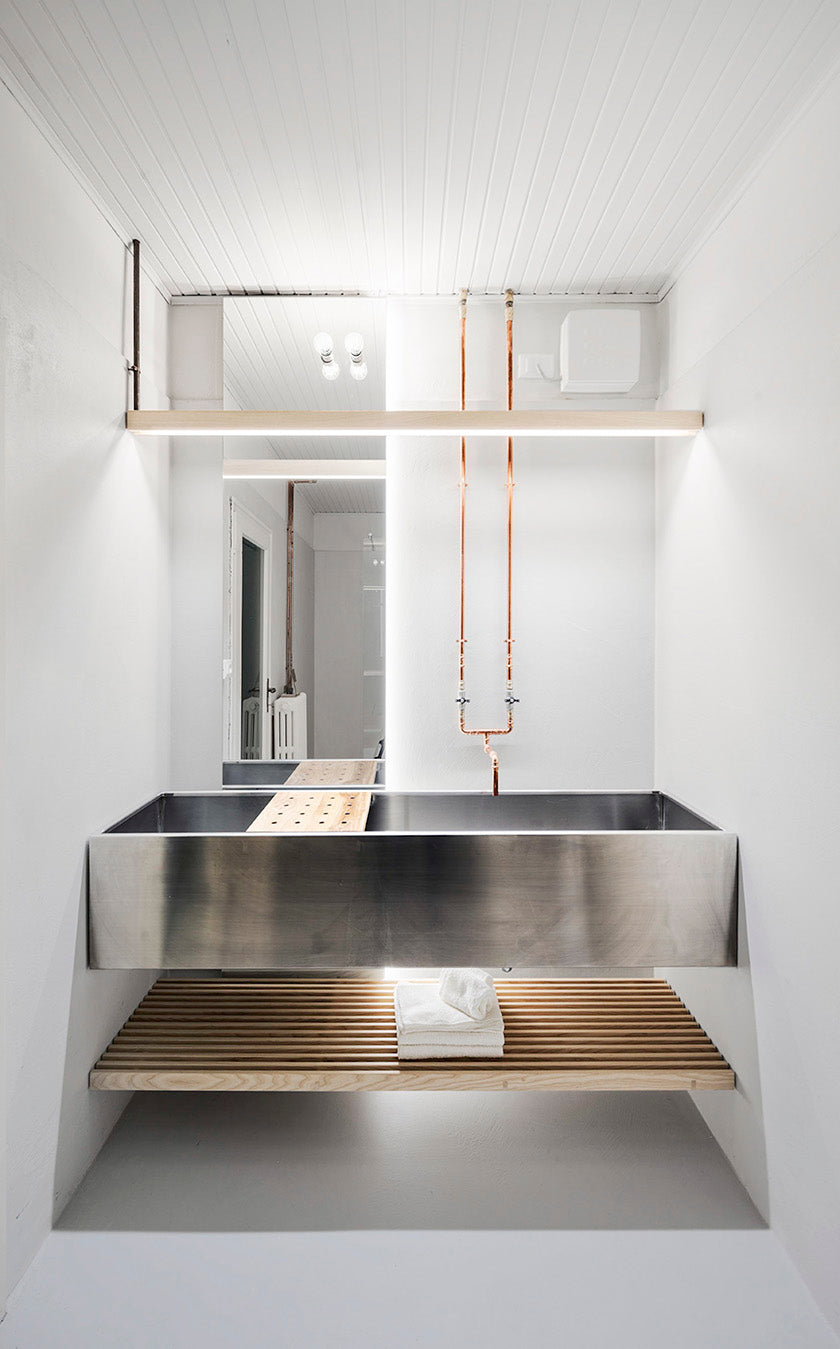
Inside, they replaced a wall by creating a custom birch-and-cane partition to discrete the sleeping and living areas. 300-year-old painted ceilings were further revealed and share the same space as a contemporary Max Frommeld coffee table, and exposed copper runs freely in a stylistic fashion that oozes modernism while the plumbing is eschewed from the historic walls.
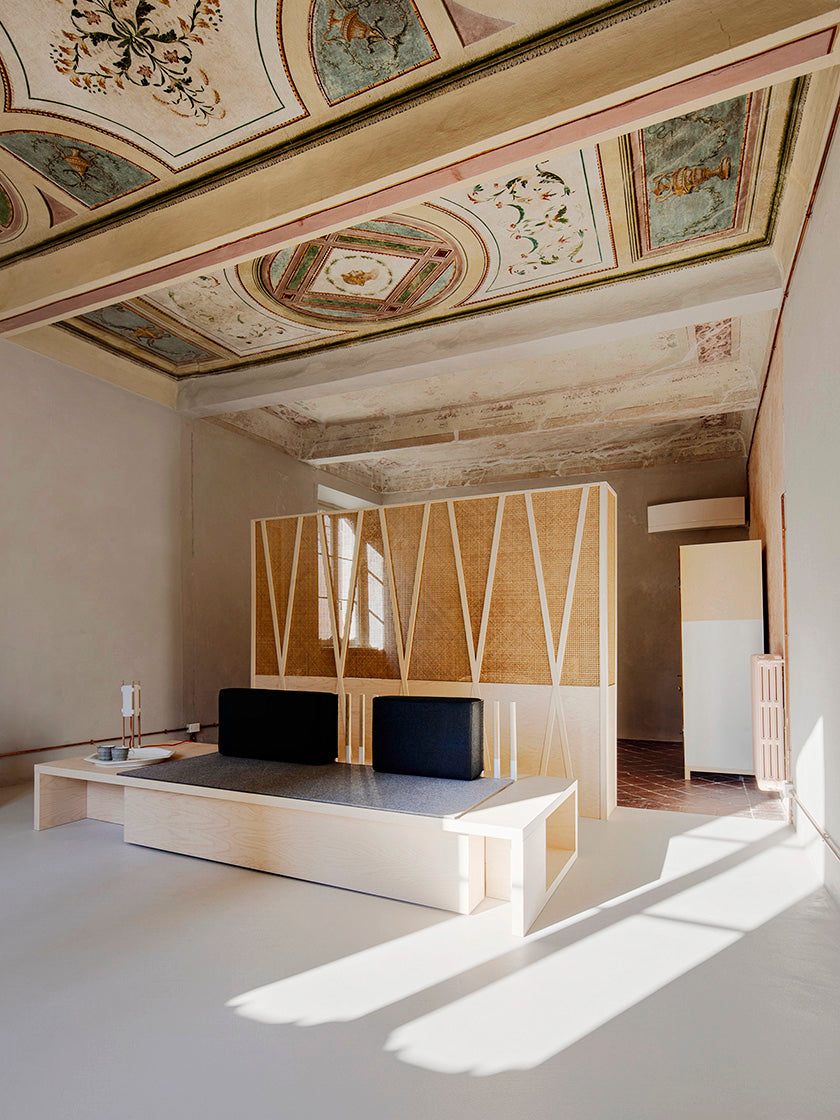
“We believe that beauty is not tied to the intrinsic value of the material used, but to the ability to build relationships. The signs of time, of man’s work, and of the aesthetic intent of different eras remain, while the new elements overlap in a manner that does not cancel out what came before,” Cisi explains.
From renovation ideas to the seemingly impossible being achieved, discover more through The Home Upgrade